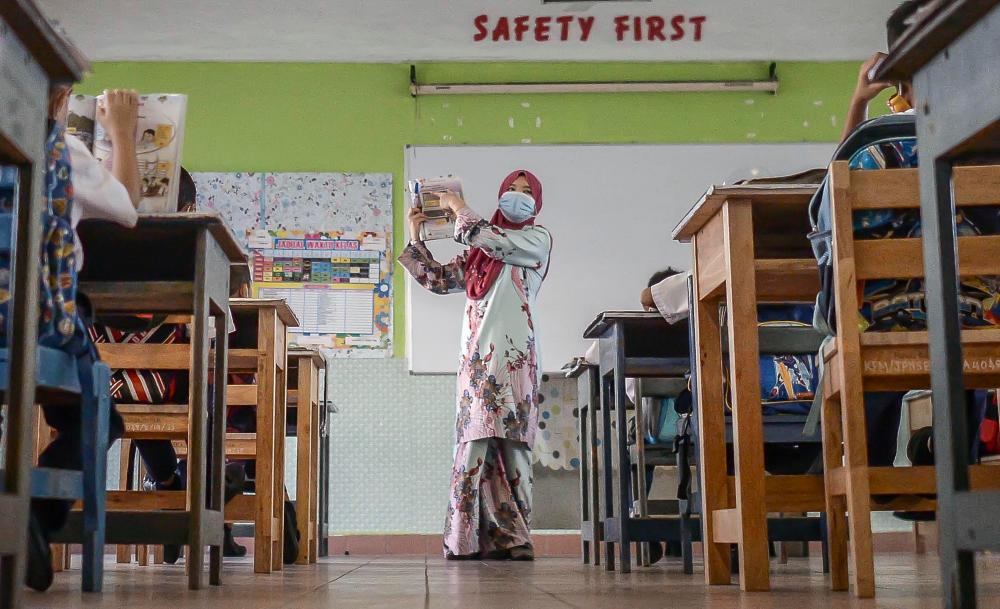PETALING JAYA: The Parent Action Group for Education Malaysia (PAGE) has slammed the decision by Education Minister Fadhlina Sidek to abolish Dual Language Programme (DLP) classes to address poor Bahasa Malaysia proficiency.
Its chairperson Datin Noor Azimah Abdul Rahim said the decision and reasoning have no relevance to the issue of poor Bahasa Malaysia proficiency.
“Fadhlina should concentrate on enhancing instruction in the language and ensuring teachers solve the weaknesses in teaching Bahasa Malaysia.
“There is also discontent among Tamil schools, as they want DLP classes, but Fadhlina insists on teaching in Tamil, citing the preservation of the mother tongue as her responsibility.
“I firmly believe that the minister’s approach is deeply flawed as she claims to be the protector of the national language and Tamil. This could have serious consequences for language proficiency and the overall well-being of our education system.”
Noor Azimah said Fadhlina’s approach compromises educational opportunities for students in Tamil schools, who are denied the benefits of DLP in Science and Maths, adding that parents who understand the significance of science, technology, engineering and mathematics education in English were willing to forgo the subjects taught in Tamil.
She said the one-size-fits-all policy overlooks the possibility of promoting proficiency in the mother tongue without hindering student access to DLP in other subjects.
Noor Azimah said the guidelines mandate that schools applying for DLP status must meet the national average for Bahasa Malaysia proficiency. However, the current practice involves subjecting six-year-olds to a Bahasa Malaysia assessment, which is not specified in the guidelines.
She said the assessment determines whether students are placed in DLP or non-DLP classes.
“Consequently, some students, perceived as being weak in Bahasa Malaysia but strong in English, are placed in non-DLP classes where Science and Maths are taught in Bahasa Malaysia, contradicting parental consent, a key aspect of the DLP spirit.
“A more effective approach would involve allocating DLP or non-DLP classes based on parental preferences and providing targeted Bahasa Malaysia support programmes when needed, ensuring fair and informed decisions that align with the spirit of DLP,” she said, adding that the closure of DLP classes could have adverse effects on the mental health of students.
“Parents are pressured to accept non-DLP classes with the warning that refusal may result in their child failing Bahasa Malaysia at the (SPM level) 11 years later.
“At the secondary level, students in DLP classes are singled out for weak Bahasa Malaysia proficiency and are told to switch to non-DLP at Form 4, potentially causing mental health issues due to the abrupt change and the perceived harsh approach towards language learning,” she said.
Noor Azimah recommended that the government adopt a targeted approach to address language proficiency issues without compromising the mental health of students or hindering economic prospects.
She said Fadhlina should listen to parents, adhere to the Education Act 1996 and strictly follow the DLP guidelines without imposing additional conditions, adding that giving school administrators autonomy would enable them to effectively interact with parents while taking into account the culture at each school.
“Adopting a flexible approach acknowledges the diversity within the education system and moves away from a one-size-fits-all mentality, promoting inclusive decision-making.”









